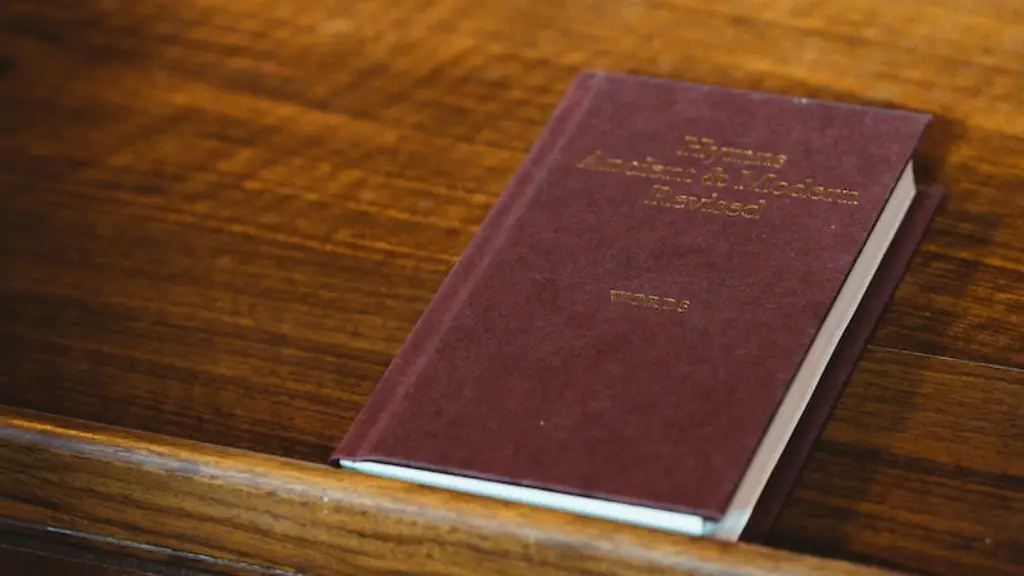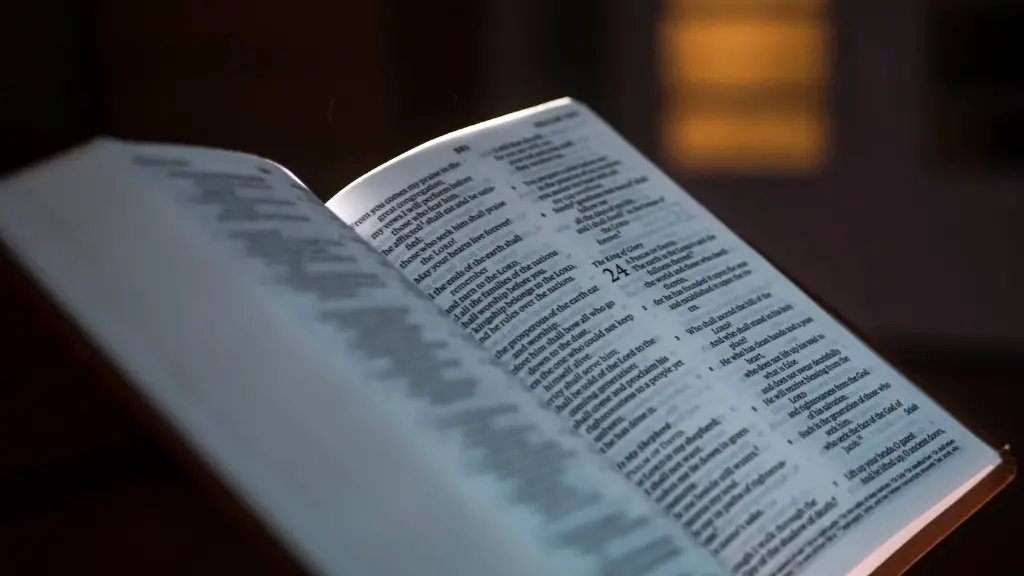Introduction
Rahab is an important figure in both Jewish and Christian tradition, as she appears in multiple books of the Bible, most famously in the Book of Joshua as a heroine. She is also mentioned in the Book of Hebrews and elsewhere. In the Jewish tradition, she is viewed as one of the ‘righteous women’ and her presence in these stories offers precious insight into the ancient understanding of gender roles, making her a fascinating and important focus of study.
Historical Context
Rahab is believed to have lived in Jericho in the land of Canaan. She was a Canaanite, or an inhabitant of the land. Canaan was a land occupied by varied indigenous peoples, including the Amorites, Canaanites, and Philistines. At the time Rahab was in Jericho, the Israelites had begun to move into Canaan and were seeking to establish a presence in the land. Most of the inhabitants of Canaan would ultimately be vanquished by the Israelites. Rahab, however, is not only spared, she is memorialized for her role in aiding the Israelites.
Rahab’s Character
Rahab is, at first, presented as a morally ambiguous figure. She is engaged in a trade that is not looked upon favorably in the Bible – that of a prostitute. But her character quickly evolves, as she realizes the power of the Israelites and quickly aligns with them in order to secure her family’s safety. She assists the Israelite spies in their mission, and, in doing so, saves her own family and a small group of others. From here, she eliminates moral ambiguity and becomes an example of courage and heroism, as she is willing to risk her own safety to help the Israelites.
Rahab’s Legacy
Rahab is remembered in the Bible for her courage and faith and is included in the genealogy of Jesus in Matthew 1. and later, in the epistle to the Hebrews, where her faith is praised for allowing her to receive promises from God, despite living as a Gentile. She is also often cited in sermons and Christian literature as an example of God’s grace and salvation being available to all people, regardless of their background. Interestingly, in Jewish tradition, she is seen as demonstrating how faith can be found in unconventional places and is often cited as an example of how good can be found in unexpected people.
Theological Significance
Rahab’s story is important for Christian theology as it demonstrates God’s grace and mercy towards all people. It also serves to remind readers and listeners that God’s love is not bound to any particular nation, race, or gender. Finally, Rahab’s story serves to illustrate the power of faith, as she put her trust in God to save her from danger and received God’s salvation, despite being from a different nation.
Political Relevance
Rahab’s tale is important in political discourse as it relates to the occupation of lands and war. Often, wars are fought between nations, but Rahab’s story shows us the personal side of war – those who are caught in the crossfire and suffer the consequences of decisions not their own. This is still relevant today; many people suffer in wars, as they struggle to stay alive and provide safety for their families. Rahab is a powerful symbol of these struggles, serving as a reminder to us all.
Theological Perspectives
Theologians often emphasize the parallels between Rahab and Mary the mother of Jesus when discussing the story of Rahab. Both women are portrayed as outsiders and both have a child from a divine father. Additionally, Rahab is often praised for her lack of pretense and her faith in God, which is seen as an important lesson in humility. Furthermore, Rahab is seen as a reminder that no matter one’s background, faith can overcome any obstacle.
Existing in Literature and Art
Rahab has been prominently featured in literature and art throughout the centuries. She has become an important religious symbol and her story has been used to illustrate a variety of theological and moral ideas. In the Bible, her story is retold in multiple books, most notably in the Book of Joshua, where she is presented as a heroine. In addition, her story appears in many other religious texts, including the Qur’an, as well as in a variety of non-religious works. She has also served as a constant source of inspiration for artists in many mediums, including poetry, painting, and sculpture.
Contemporary Meanings
As the biblical narrative has evolved, the story of Rahab has taken on new meanings in the modern age. To some, she is a figure of hope and courage, symbolizing the power of faith and resilience. To others, she is a beacon of morality and faith, as her story serves to illustrate the importance of humility and obedience. Regardless of one’s interpretation of her story, Rahab offers an important reminder of the power of faith, humility, and courage. In a world filled with conflict, Rahab stands as a reminder of what can be achieved through faith.
Rahab in Christianity
In Christianity, Rahab has become an important symbol of faith and humility. Her story has often been used in sermons and other religious texts as an example of the power of faith to overcome any obstacle. Additionally, many Christian theologians have used her story to illustrate a variety of moral and theological lessons. For example, her story has often been used to highlight the importance of faith, humility, perseverance, and obedience to God. Additionally, Rahab has often been used as an example of God’s grace, mercy, and acceptance, as her story demonstrates how salvation is available to all.
Historical Relevance
In addition to its religious significance, Rahab’s story has also been significant in terms of our understanding of the ancient world. As one of the few Canaanites mentioned in the Bible, Rahab provides us with valuable insight into the ancient Near Eastern cultures. She is an important figure who bridges the cultural gap between the Israelites and their more ancient neighbors, as she presents an example of a Canaanite woman who chooses faith over fear. Her story also serves as an important reminder of the personal side of war, as she shows us the human cost, bravely confronting the dangers posed by a conquering army.





